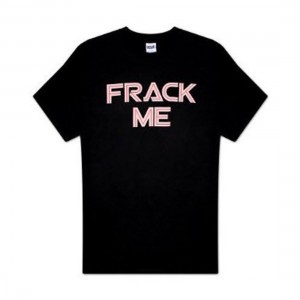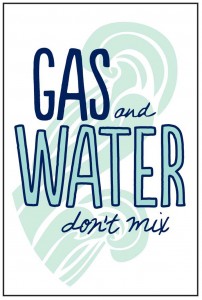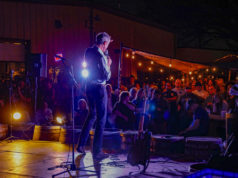The rigs were loud and operated most of the day and night. And even though residents had been told that drilling itself would last only a few weeks, they learned that multiple wells are usually drilled from each well pad, and then they have to be re-fracked every few years.

There were explosions and fires and air contaminated with benzene. There were poisonous spills and water wells that frequently went bad when fracking started in the vicinity. Turned out that the “saltwater” disposal wells the industry also wanted to drill for getting rid of wastes really were to be injected full of highly toxic, sometimes radioactive, and, yes, intensely salty liquids.
Then there was the use of eminent domain to lay gas pipes and the construction of compressor stations that, despite industry commercials touting its commitment to clean water and clean air, billowed clouds of unhealthy gases (though visible only with infrared cameras).
Finally, there was that mailbox money, which fell off precipitously after the first six months a well was in service, and then fell off again when the glut of natural gas being produced resulted in a severe drop in prices. These days, the royalties frequently total no more than $10 to $15 an acre — and not many people in Fort Worth have anything close to an acre.
Ruggiero talked about a shale gas well blowout in Pennsylvania some months ago that led to the evacuation of 12 families from the area. When the news hit the press, he said, the industry called it a “temporary relocation,” not an evacuation.
“All they do is spin,” Ruggiero said. “They talk about creating jobs, lessening dependence on foreign oil — all well and good — but they only use those things to get them off the hook for the damage they do.”
Gary Hogan, who served on both of Fort Worth’s gas drilling ordinance committees under former Mayor Mike Moncrief, said the industry definitely brought the word “frack” down on itself.
“Everywhere this industry goes it’s the same story: bad air, ruined roads, spills, poisoned wells,” he said. “We were the first urban area to be fracked, but as the industry moves across the country, the people coming after us have had something to look at, something to read, before the drillers arrived.”

Along the way, companies like Chesapeake have shelled out millions to improve their image, donating money to seemingly endless charities. The annual day-after-Thanksgiving holiday parade became the “Chesapeake Parade of Lights,” a title that made many local people wince.
Hogan says that it’s apparent that the industry is spending money to fight activists with public relations campaigns “rather than trying to drill more responsibly. They’re trying to fight a movement that’s going worldwide: France doesn’t want any part of it. China would rather just buy the gas from us than find itself fracked.”
“I think the real problem is that these gas companies just don’t have the technology to do this work safely and cleanly in urban areas,” said Kim Feil, an Arlington activist who carries a life-sized dummy she’s dubbed BenZene and wears a gas mask to anti-gas drilling rallies. “And if they don’t, they don’t need to be fracking up our neighborhoods.”
********
Possibly the first anti-drilling bumper sticker in the nation and certainly the first in Texas that related to the natural gas industry was Don Young’s 2007 “You can’t drink natural gas.”
“I don’t know that I ever heard the word ‘fracking’ until I read it in a newspaper from Pennsylvania in 2008,” Young said. “But it certainly has taken off, and it’s got such a nasty ring to it.”
Since then, Hogan said, the number of people actively opposed to drilling has become too large to marginalize. “The industry brought this on themselves,” he said. “They were the ones focusing on the fracking to try to take our eyes off all of the other issues that have a negative impact on our lives. And activists finally picked up on that and began using it against them.”
The rhetoric may be getting even stinkier — and funnier. Deborah Rogers said that she was in New York speaking about the economics of natural gas when a man approached her and introduced himself as a member of Pedal Power, a grassroots group that promotes bicycle riding.
“He told me the group’s new campaign slogan was ‘Pedal Power, powered by clean-burning natural ass.’ ”












How about: “Stop Fracking Up My Water Supply” or “Stop Fracking Up Our Aquifers”….. Millions upon millions of gallons of water (that cannot be replaced) being pulled from Texas aquifers even during drought conditions. People who had good, producing water wells just a few years back which are now going dry. And what do we get from the TCEQ???……. Crickets chirping………
I noticed over the past few weeks that when I’ve read or heard a nat gas story in the paper, tv, or magazine they recently have been opting for the phrase ” hydraulic fracturing” rather than the f-word. I doubt that shift in word choice is accidental.
still no print view? why?!?!?!?
Fort Worth and Arlington are all fracked up. What cities allow outside corporations to invade and take over enitire communities like this only to turn them into industrial zones? It is time to stop the build out and start class action lawsuits. Why has Southlake managed to keep the frackers out while we welcomed them? Do we really think this is good for property values or quality of life? Who would want to live here now? We’re friggen frieken fracked.
Hey Liz.. guess what, they are almost gone. There are only 7 rigs operating in Tarrant county today, Wise has 9…that’s a first.
Of course I hope your well being (your business or job) doesn’t rely on the Barnett because along with the drilling goes the jobs, services, welders, drivers, dirt work, fence, landscaping… you get the idea.